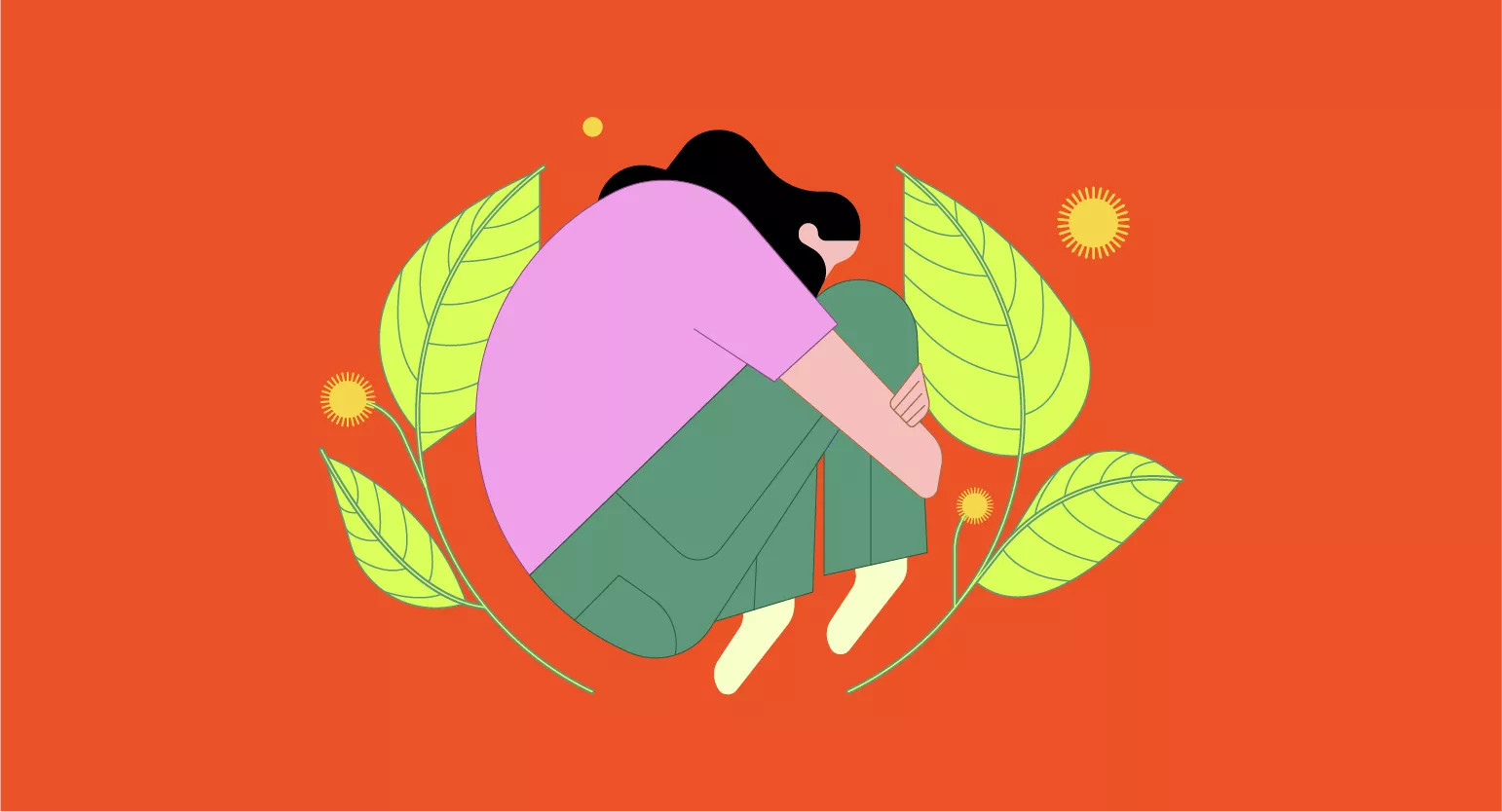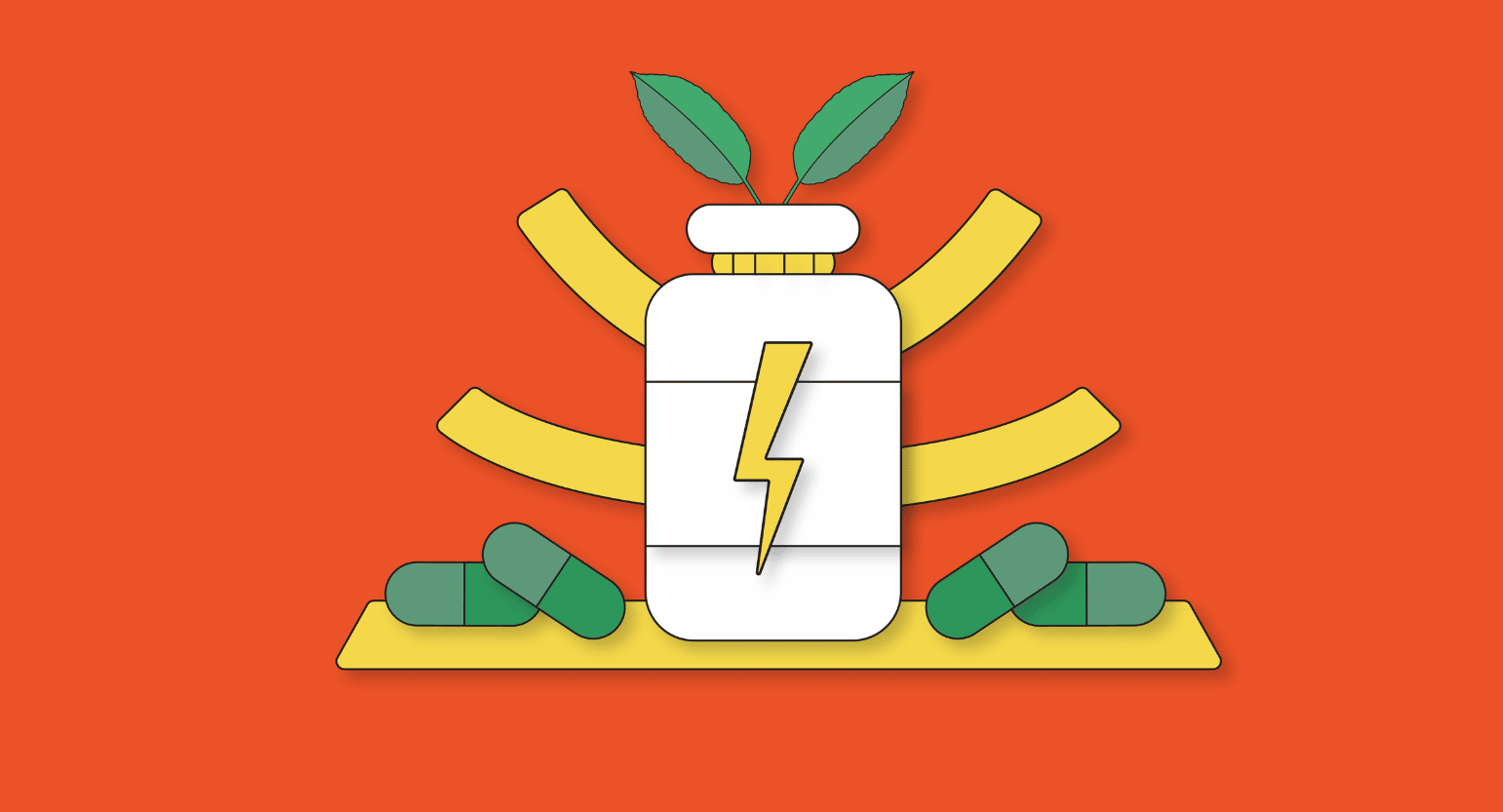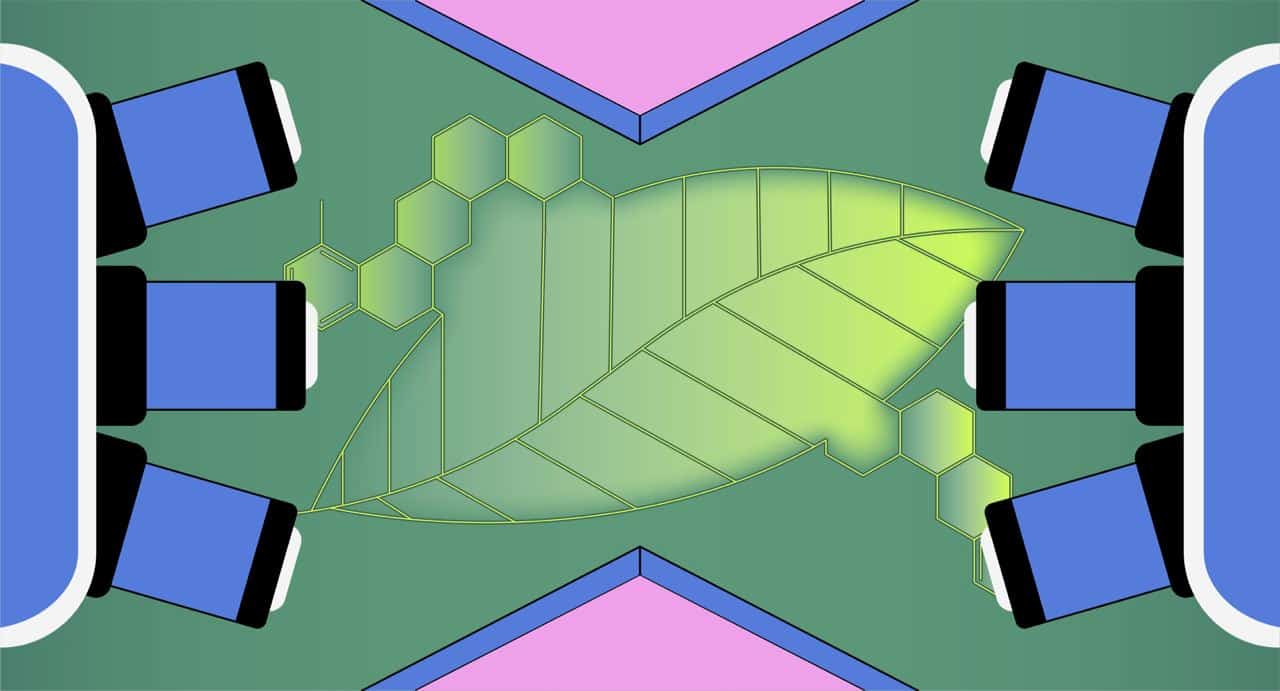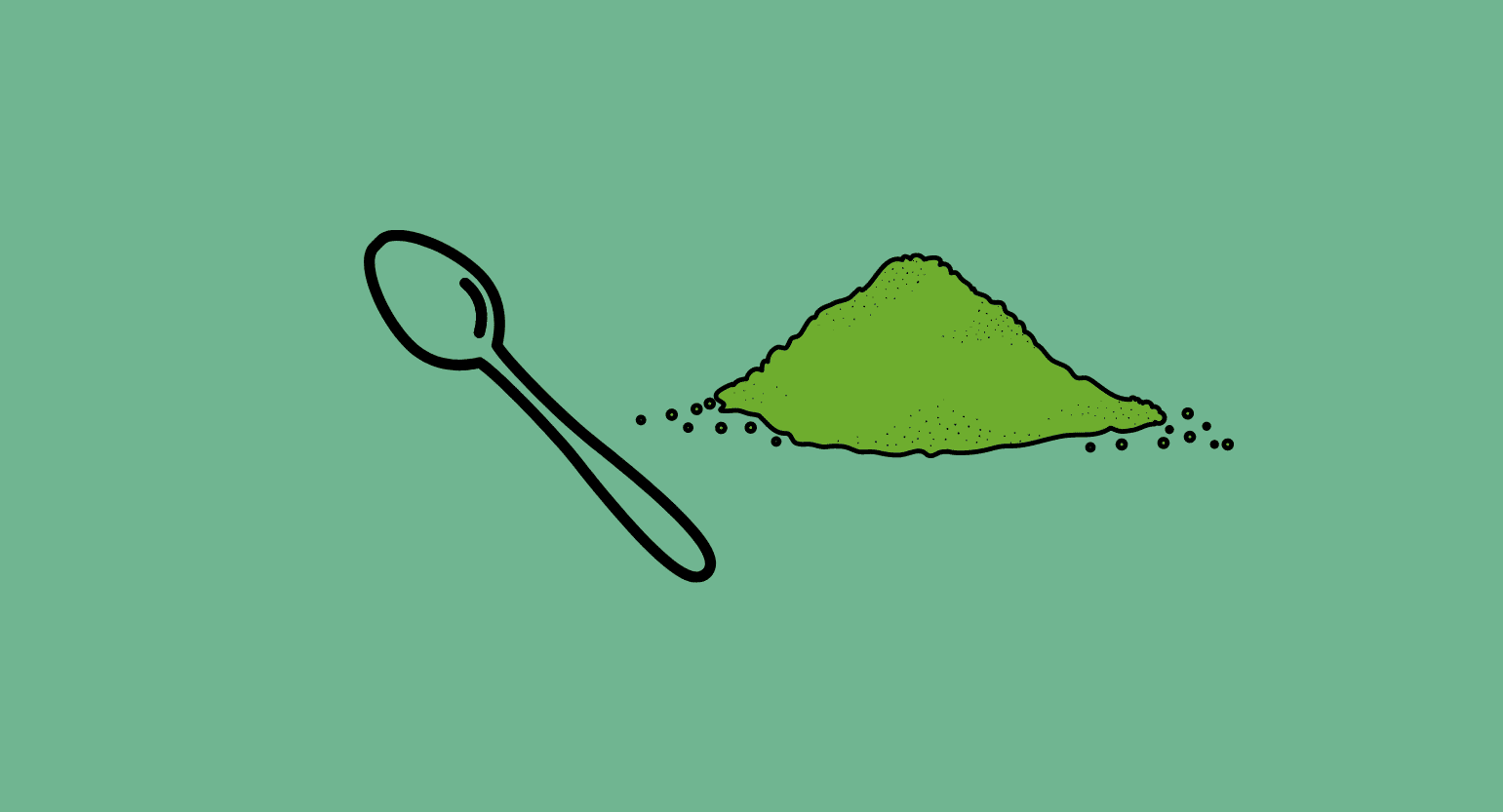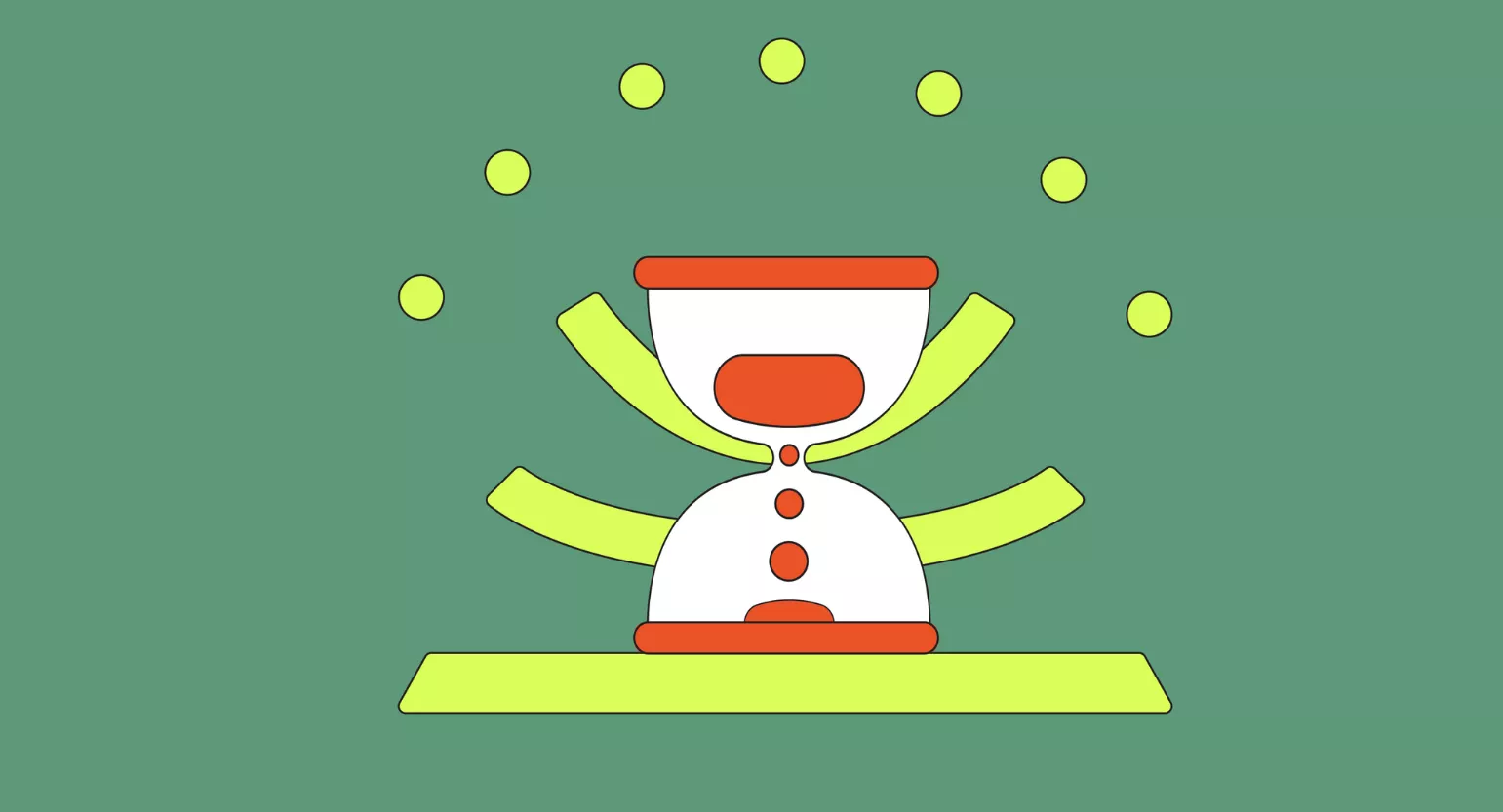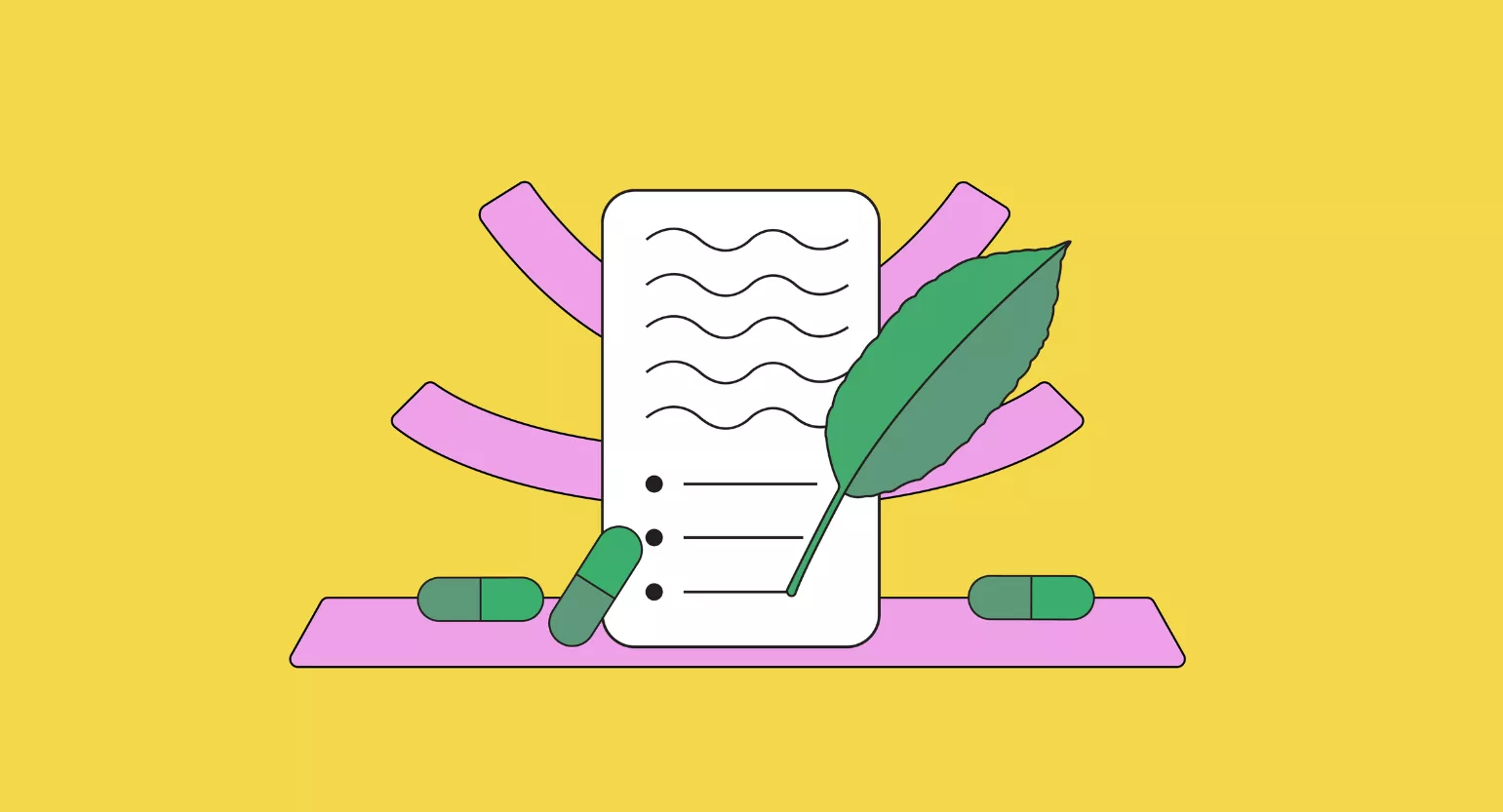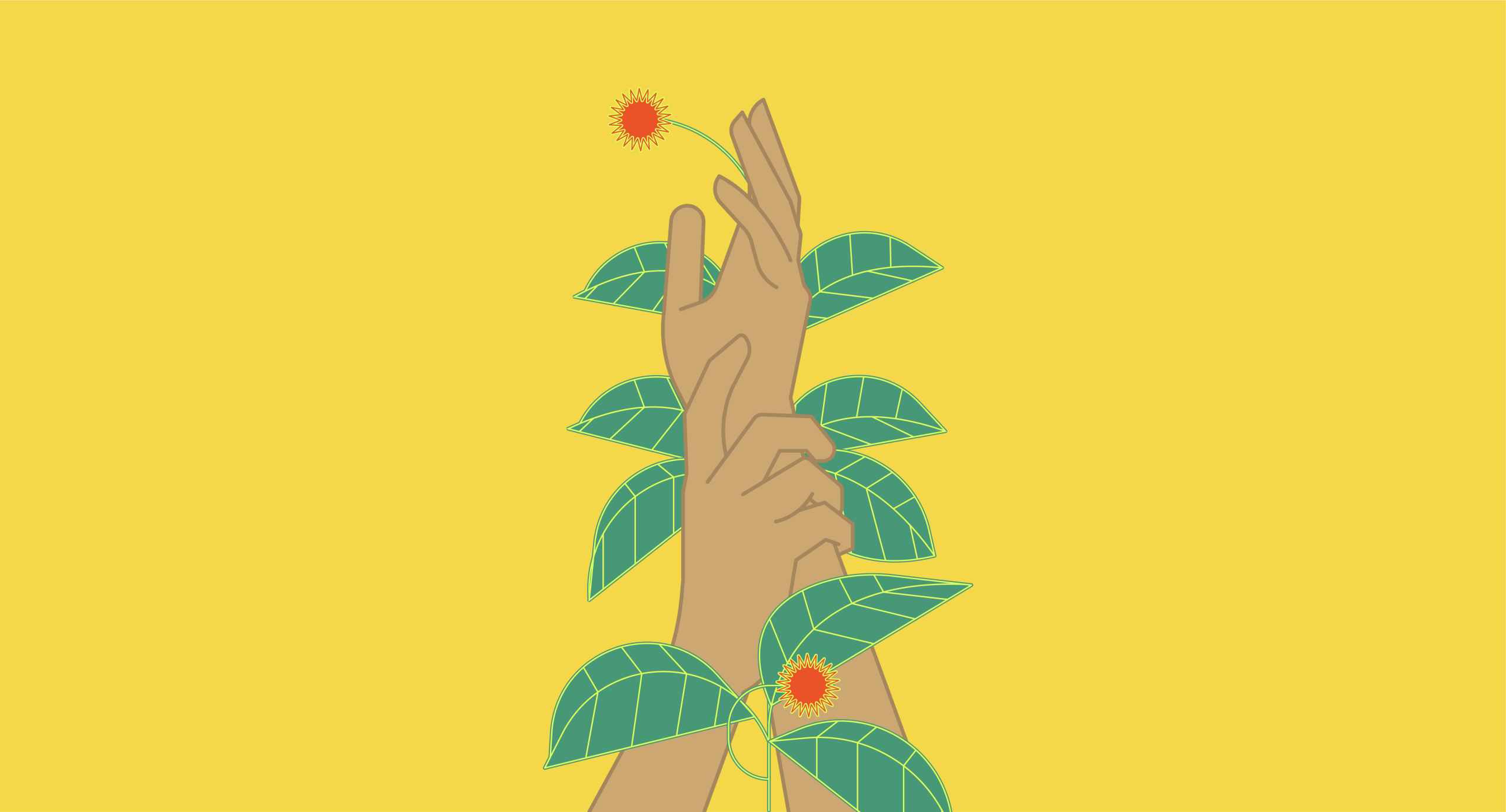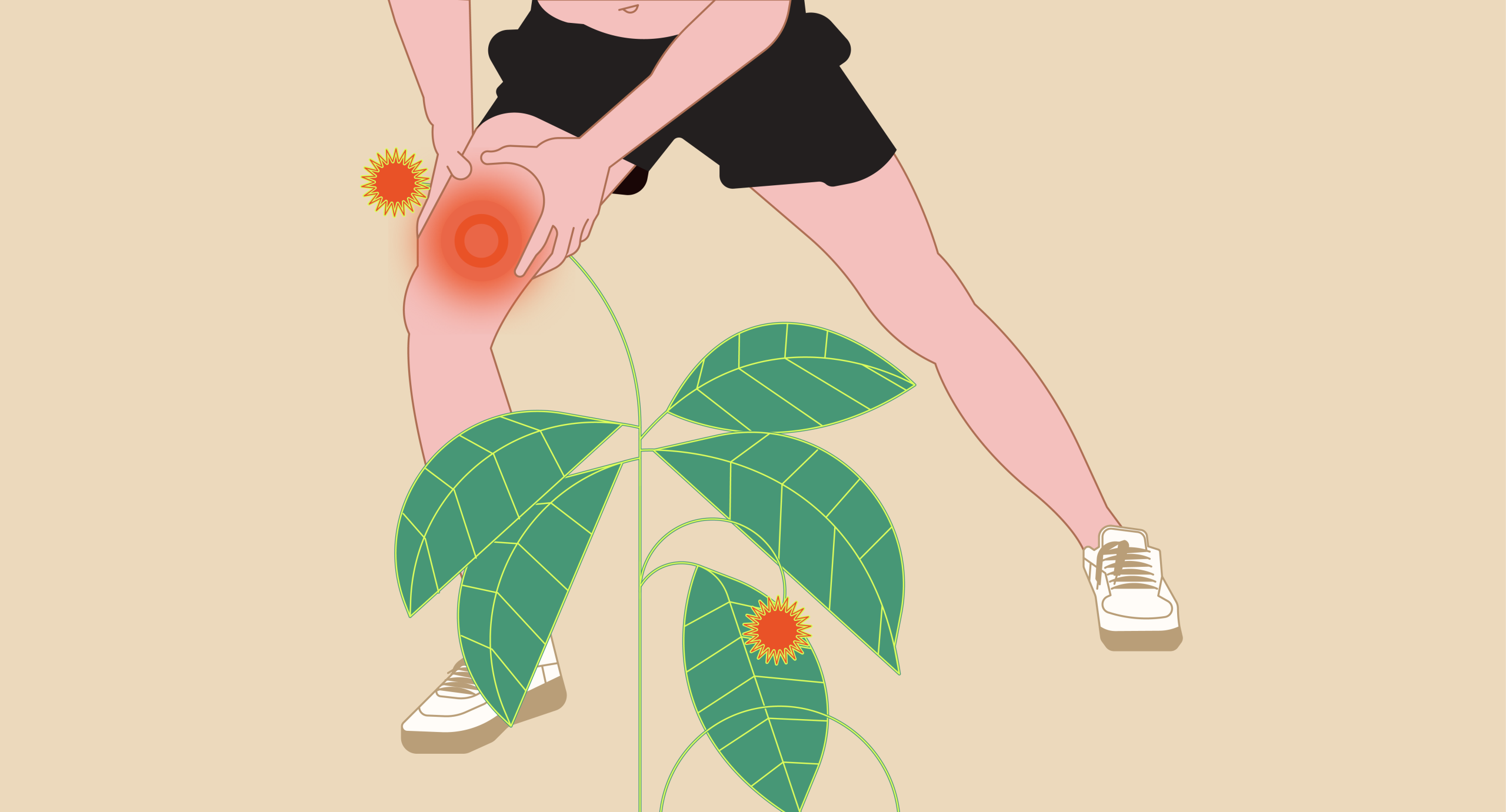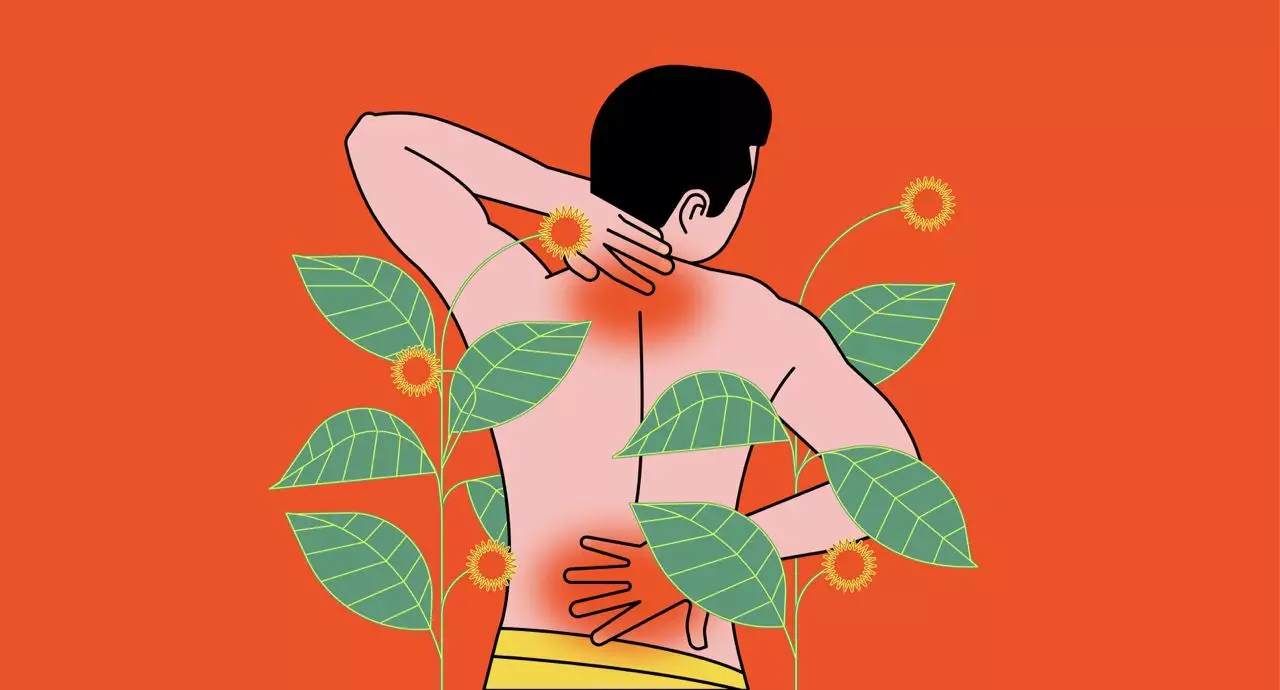Most kratom can be used to support anxiety, depression, or other mental health disorders — but some strains are much better than others.
In general, you’ll want to find a strain that isn’t too stimulating. Strains that contain a high concentration of stimulating alkaloids such as ajmalicine and mitragynine may actually lead to an increase in anxiety — if used in lower doses.
The ideal strains contain higher concentrations of the alkaloids 7-hydroxymitragynine and speciogynine — which are the primary relaxing compounds present in the plant.
Most people who use kratom for anxiety go for a relaxing green or red strain and opt for the higher dosage ranges (over 5 grams of dried leaf powder per dose).
Best Kratom Strains For Anxiety & Depression
Here are three of the most popular kratom strains people are using today for mental health:

1. Green Malay Kratom
Green Malay kratom is one of the most relaxing green-vein kratom strains you’ll find. It’s a popular choice among people who use kratom socially while hanging out with friends. It’s been dubbed a “social lubricant” strain for its ability to make users feel calm and relaxed — but connected and talkative due to the euphoric effects.
This strain is a good option if you’re using kratom to manage anxiety during the day and want to avoid the sedative effects of some of the stronger green or red vein kratom.
Benefits of Green Malay Kratom:
- Makes for a great “social lubricant”
- Produces a sense of peace & wellbeing
- Euphoric in the higher doses
→ Find This Strain on Kona Kratom.

2. Red Thai Kratom
Thai kratom, in general, is excellent for managing anxiety. They’re notorious for their ability to promote a carefree, relaxed attitude. Many users describe the feeling that they’re floating on a cloud. The body feels light, and all your stresses seem to melt away.
I’m not even exaggerating here — that’s the type of sentiment any serious Thai kratom user is likely to agree with.
The red vein Thai strain is particularly good for relieving anxiety and offers additional benefits for depression and other mood disorders. In higher doses, it becomes a formidable euphoriant.
The green vein Thai is another great option if you’d like something with a little bit more of an energizing action.
Red vein kratom is generally regarded to be the best for anxiety.
Benefits of Red Thai Kratom:
- Provides a pleasant sense of peace & wellbeing
- Feels like you’re floating
- Excellent anti-anxiety strain for even the most anxious individuals
- May be used to alleviate insomnia
→ Find This Strain on VIP Kratom.

3. White Maeng Da Kratom
Maeng Da is a very popular strain of kratom due to its high potency and long-lasting effects.
You can find maeng da kratom in red, green, and white — and truthfully, all of them have fairly strong euphoric and relaxing benefits that make them helpful for managing anxiety and depression.
With that said, I’ve found the White Maeng Da variety to be the strongest in terms of the herb’s anti-anxiety benefits. It’s more stimulating than the red version — but in a way that doesn’t seem to trigger anxiety-like other white vein kratom strains sometimes do.
This is a great strain to use for anxiety in situations where it’s important to also remain alert and active. A few examples include attending university, giving a talk or presentation, or working. Most kratom strains that are used for anxiety have sedative side effects that can interfere with your ability to stay focused and alert while you use it.
Benefits of White Maeng Da Kratom:
- Stimulating — but without triggering anxious side-effects
- Potent euphoriant & relaxant
- Promotes focus & concentration
- Alleviates fatigue & lethargy
→ Find This Strain on Star Kratom.
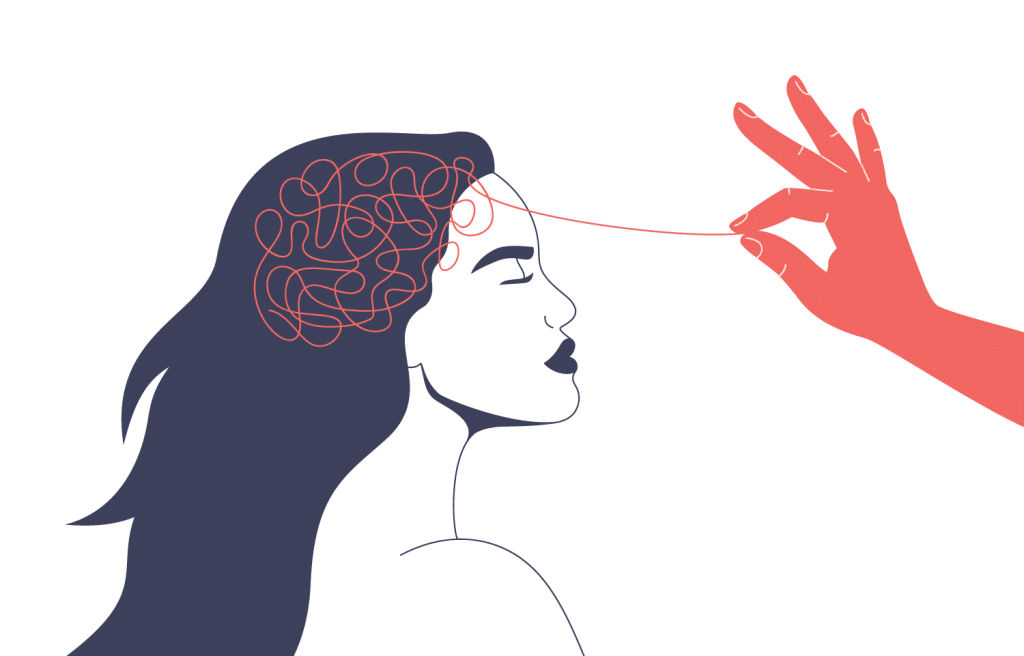
Kratom For Anxiety
Kratom (Mitragyna speciosa) contains more than 40 pharmacologically active alkaloids — several of which are potent opioid receptor agonists. This means they have the ability to bind and activate opioid receptors located in the spinal cord and brainstem.
This effect is responsible for the bulk of kratom’s painkilling benefits because the opioid receptors are intimately involved with pain regulation.
But that’s not all the opioid receptors do.
Studies have shown that opioid receptors are also involved with the regulation of a neurotransmitter known as GABA [4].
GABA is the brain’s primary neuro inhibitory compound — which means it has a relaxing effect. The role of GABA is to oppose the effects of glutamate — which stimulates the neurons and increases electrical activity in the brain. When electrical activity is high, we feel alert and focused. If it goes too high, we feel anxious.
By blocking the effects of glutamate, GABA is able to reverse the effects of anxiety and bring us back to baseline. In the evenings, GABA activity spikes, helping us to relax and fall asleep.
Kratom is also thought to support anxiety by elevating mood and improving our quality of sleep each night.
What Does The Research Say About Kratom & Anxiety?
Unfortunately, there aren’t any clinical trials to explore the effects of kratom for managing anxiety in a controlled environment. However, there are plenty of excellent survey studies and in vivo or in vitro research to help us understand if and how kratom is useful for managing anxiety disorders.
Let’s cover the most promising studies that explore the effects of kratom on anxiety.
A study analyzed 161 first-hand kratom user reports from the psychedelic forum Erowid [2]. The study found that 30% of these reports indicated that kratom use resulted in a greater sense of wellbeing. The study also reported that 24% of users experienced subjectively lower levels of anxiety while using kratom. Only 3.1% of the reports included in this study described feelings of sedation.
Another survey-based study reported that out of 8049 surveyed, 66% used kratom to relieve negative mood disorders ‚ which included anxiety, as well as PTSD (post-traumatic stress disorder), and depression [3]. Out of all participants in the study, 74% reported lower levels of anxiety after using kratom — even among those not using the herb specifically to manage their condition.
Both of these survey studies reported greater anti-anxiety benefits in the higher dosage ranges (over 5 grams of dried powder).
Kratom & Harm Reduction: Anti-Anxiety Medications
The most common anxiolytic medications used today are benzodiazepines. Some of the more popular prescriptions in this class include drugs like Xanax, Librium, Tranxene, Valium, Paxipam, Ativan, Serax, Centrax, Doral, or Klonopin.
Benzodiazepines aren’t particularly dangerous on their own — they rarely lead to fatal overdoses unless mixed with alcohol or other medications.
However, they do have a high risk for addiction and can make anxiety symptoms far worse with long-term use. Withdrawal from benzos can even be fatal [10].
People who are dependent on benzodiazepines after initially being prescribed for managing anxiety may eventually reach a point where their body demands more of the drug than their doctor will prescribe. When this happens, the individual will either need to seek out new, often illicit, sources for the drug — or suffer the consequences of withdrawal. If no more of the drug can be sourced, it can lead to delirium, vomiting, diarrhea, and even death. It’s some pretty nasty stuff.
Kratom is being used as an alternative to these harsh, addictive substances more frequently today than ever before. Kratom does have long-term side effects too — but they’re significantly less severe than those of the benzodiazepine class. For example, you won’t die or experience delirium from kratom withdrawal.
This is the basis of harm reduction.
Learn More About Using Kratom for Benzodiacepine Withdrawal Here.
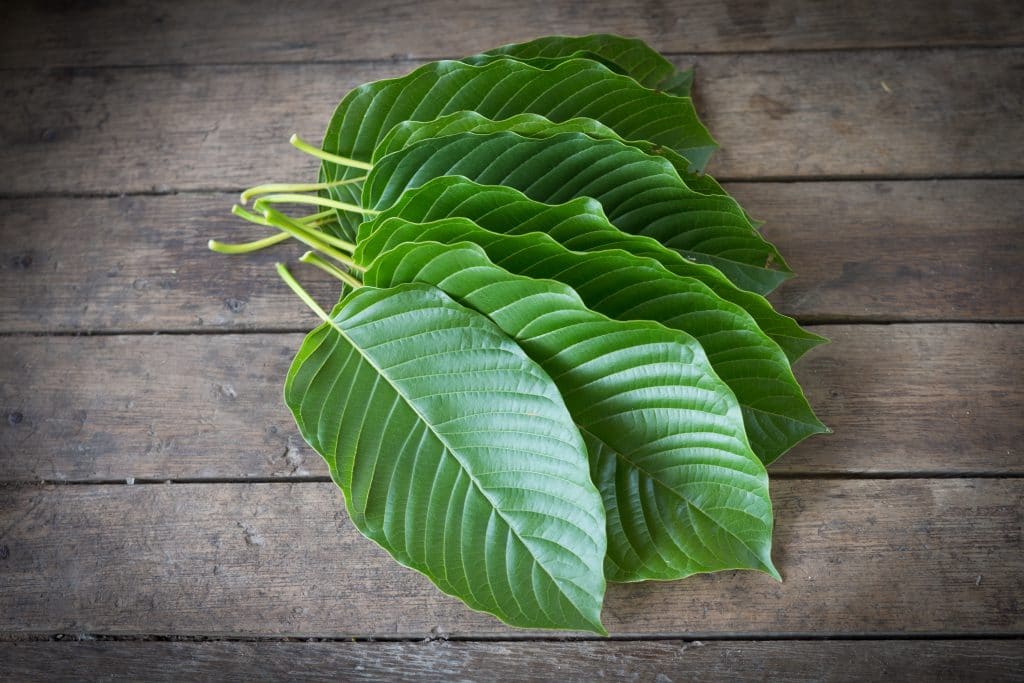
What’s the Dose of Kratom For Anxiety?
The ideal dose of kratom for anxiety is 5 to 12 grams of dried leaf powder — taken once, twice, or three times per day.
There are two main dose ranges for kratom — low dose and high dose:
- Low dose kratom — Considered anything below 5 grams. This dose is going to have stimulating effects. Some people find low-dose kratom has the opposite effect on anxiety and may even make it worse.
- High dose kratom — Considered anything between 5 and 12 grams of powder. This is the ideal dose for managing anxiety. In the higher dosages, the effects of kratom flip and become much more relaxing, sedating, and anxiolytic.
Everybody responds differently to kratom, so you should always take dosage recommendations with a grain of salt. It’s important to listen to your body and adjust the dose accordingly. If you aren’t feeling the effects you’re looking for, increase the dose slightly each time until you find what works for you.
If you experience side effects, reduce the amount you take slightly for future doses until they no longer appear.
Related: Can You Overdose on Kratom?
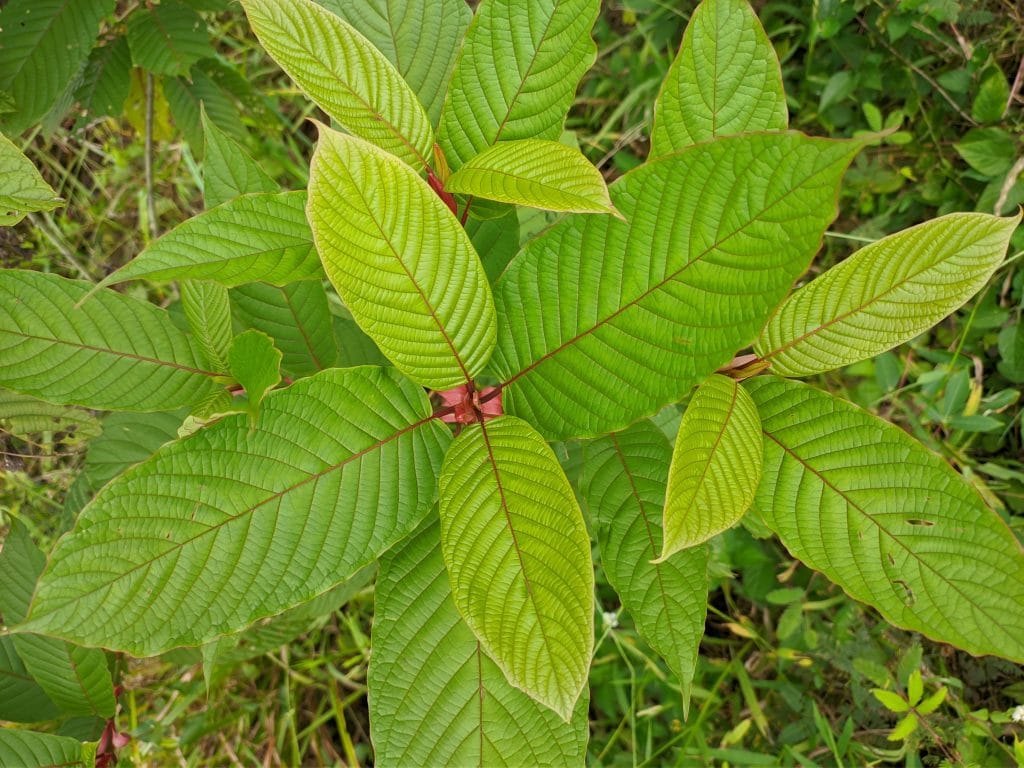
Kratom for Depression
According to the World Health Organization, clinical depression affects an estimated 300 million people every year. Millions of others experience sub-clinical depression. This refers to depression that isn’t severe enough for a diagnosis but affects the quality of life of those affected nonetheless.
Before we explore the potential impact kratom has for managing this condition, we have to touch on the underlying cause of this condition.
Depression is often the result of underlying trauma. This could come from something that happened during childhood or from long-term stress. There are many causes — but ultimately, the best form of treatment is going to involve identifying this cause and treating it at the source.
Kratom can be an incredibly useful tool for alleviating symptoms and helping you stay motivated while you seek more specific help for the condition. Kratom has stimulating effects, which makes it well-suited for people with depression that describe their symptoms as apathetic, lethargic, or unmotivated. The energetic boost kratom provides is often enough to help people kick start some movement in the day. This movement is then going to have a positive impact on your mood.
Kratom also has euphoric effects that can provide a temporary boost in mood. It’s important to understand that this effect can go a long way in alleviating symptoms of depression — but it’s only a temporary effect. It’s better to focus on the big picture and aim to use kratom more as a tool for harm reduction (more on this later) and to provide a boost in energy and motivation levels.
Then you can keep the focus on clearing up your depression through other, more long-lasting means like seeking counsel, visiting a rehab (if applicable), changing up your diet, getting some exercise, prioritizing sleep, or practicing yoga or meditation.
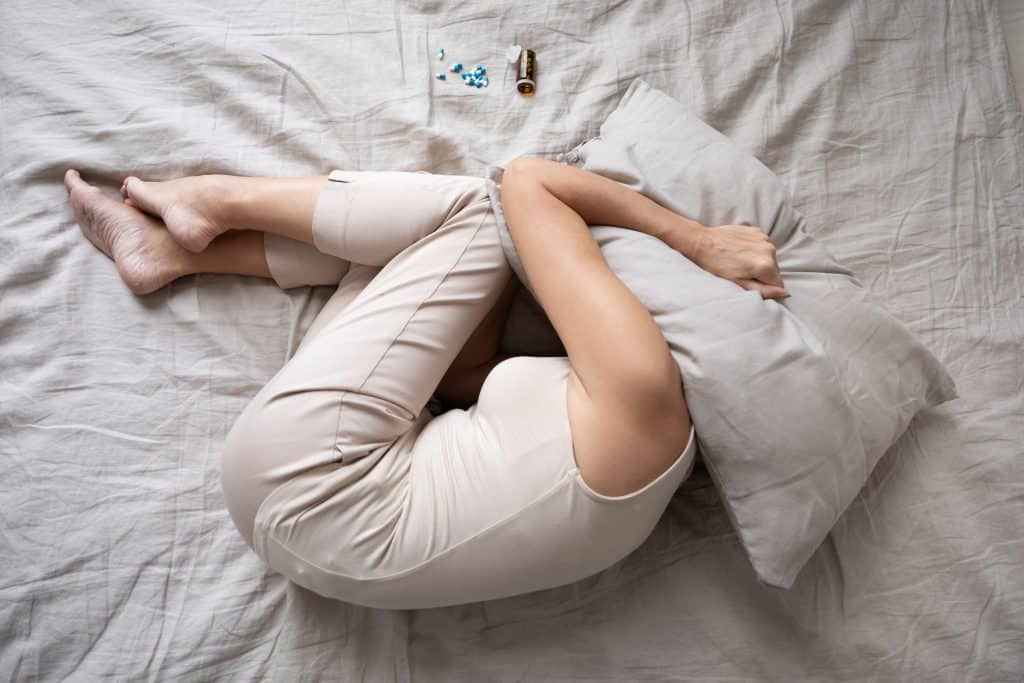
What the Research Says About Kratom For Depression & Mental Health
Kratom has been the victim of drug hysteria for over a decade. Unethical companies selling this age-old medicinal herb were caught adulterating it with dangerous synthetic drugs like tramadol. Other companies positioned the herb as a “legal high,” which prompted the FDA and DEA to block research on the herb for several years. Only recently have these restrictions been lifted after researchers were able to prove the herb wasn’t as dangerous as previously thought.
Because of this, kratom remains understudied. Only recently has the research on the potential benefits of this plant began to pick up speed.
Despite how little research there is, kratom has already been shown to possess promising results over the past couple of years as a potential alternative for the treatment of depression and related mood disorders.
A recent systematic review of 13 studies involving the use of kratom for mental illness (including depression, anxiety, and addiction) concluded that “kratom use appears to have several important mental health benefits that warrant further study.” Researchers in this study suggested kratom had the potential to be an important harm-reduction option for patients undergoing therapy for anxiety and depression.
Another study explored the impact of kratom consumption on sociability [8]. Sociability refers to the ability of an individual to engage in conversations with others. A key aspect of depression is a reduction in sociability and isolation from others [6]. Researchers discovered that kratom was able to increase sociability and reduce the emotional blunting or feelings of disconnection that stem from mental illness.
It should also be noted that reduced sociability and emotional blunting are also potential side effects of many prescription antidepressants [11] and anti-anxiety medications [12].
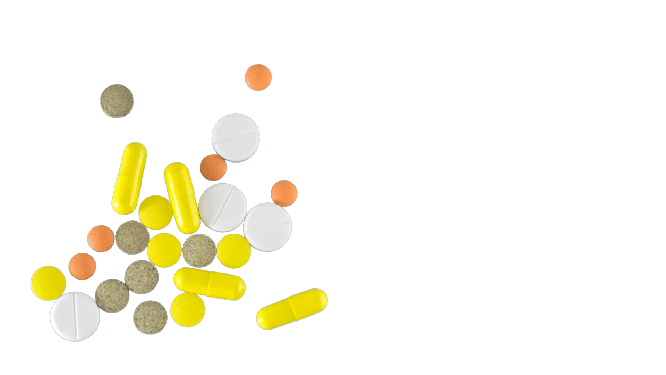
Kratom & Harm Reduction: Antidepressants
The harm reduction aspect of kratom in the context of antidepressants stems from the softer impact of the substance over long periods of time.
A study published in 2016 highlighted the prevalence of long-term SSRI administration. Most of the participants reported improvements in quality of life overall — but roughly 30% of the participants said they had moderate to severe depression even after starting the medication [9].
The long-term side effects of SSRIs reported in the study include:
- Withdrawal effects — 73.5%
- Sexual difficulties — 72%
- Weight gain — 65%
- Feeling emotionally numb — 64.5%
- Failure to reach orgasm — 64.5%
- Dry mouth — 58%
- Agitation — 55%
- Drowsiness — 55%
- Feeling not like myself — 54.5%
- Dizziness — 53%
- Reduced positive feelings — 45.5%
- Addiction — 43%
- Headaches — 42.5%
- Caring less about others — 36.5%
- Suicidality — 36%
- Nausea — 36%
- Tremors — 33%
- Feeling aggressive — 31.5%
- Diarrhea — 25%
- Weight loss — 15.5%
What’s the Dose of Kratom For Depression?
The mood-enhancing effects of kratom can be felt at both ends of the spectrum. Some users report lower doses are better for improving motivation, mood, and their ability to focus; others suggest only the high doses offer the level of euphoria and mood support they require.
The truth is that there’s no specific dose of kratom for mood. You’ll need to start with a low dose and increase by small increments every day until you find a dose that works for you.
It’s not as simple as jumping straight into the high end of the dose spectrum. Some people report a worsening of depressive symptoms with high doses — especially if the primary symptoms are a lack of motivation or apathy. This is because higher doses of kratom have sedative qualities.
For these people, the lower dose range is going to be much more effective. Lower doses are much more stimulating — often providing the boost of energy you need to get yourself up and moving.
Is Kratom Safe? What Are the Side Effects?
Kratom is considered to be a safer option than most prescription anxiety medications. The most common class of substances used to alleviate anxiety today are benzodiazepines.
Any substance that has a noticeable impact on the body is going to be at risk of producing side effects — kratom is no different.
The side effects of kratom are very manageable, and can usually be avoided entirely by being careful with the dose you use and listening to your body.
Side Effects of Kratom Include:
- Hyperpigmentation
- Insomnia
- Nausea
- Low libido
- Poor appetite
- Dizziness
- Loss of muscle coordination
- Tremors or muscle contractions
- Low blood pressure
- Itchiness in the skin
- Seizures
Is Kratom Addictive?
Kratom can be addictive — but it’s not what you think.
Any substance or activity that alleviates underlying discomfort or pain can become addictive.
Addiction is not a disease, it’s a symptom of a maladaptive response to an underlying condition, disconnection with the self, or nonspecific inability to cope with the world [14]. The primary cause for this is traumatic childhood experiences, but there are many other causes as well.
Chronic physical pain, isolation, and loneliness, loss, etc.
Nobody chooses to become addicted to something, it happens over time as one seeks temporary relief from the pain of one’s current reality. This pain can be physical, emotional, or a combination of both.
Kratom can provide this release. It can temporarily alleviate pain, negative mental states, insomnia, anxiety, and more. Because of its ability to do these things, people may become addicted to the effects of kratom over time.
The same could be said for anything that provides this release — shopping, sex, drug use, working, extreme sports, etc.
When most people think of addiction, they think of substances like heroin that take a clear hold on the physical body. People become dope-sick when they don’t use the drugs, which then forces them to take more despite clear negative consequences on their health.
Kratom does not cause addiction under this definition. While you can feel tired and lethargic for a few days after you stop using kratom (with long-duration of use only), this is a far cry from the cold sweats, tremors, seizures, chills, fevers, and heart palpitations that accompany the withdrawal symptoms of alcohol, benzodiazepines, and opiates.
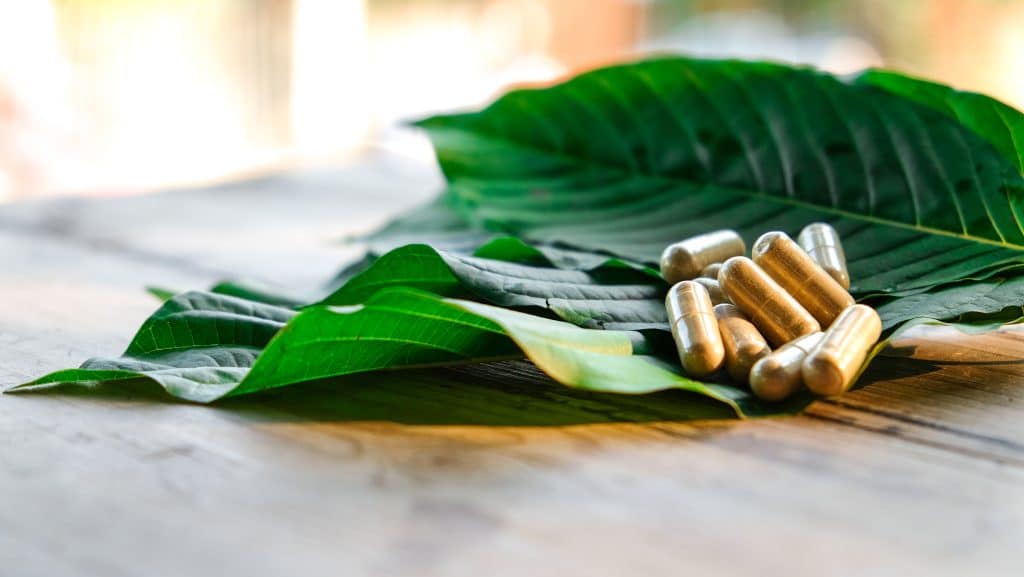
Kratom For Harm Reduction
Harm reduction refers to a variety of public health policies designed to reduce the negative physical and social consequences associated with certain activities. Kratom is often praised for its use in harm reduction for both legal and illegal drug use.
The idea is that kratom can act as a substitute for more harmful substances like illicit opiates (like heroin or fentanyl), antidepressants, anti-anxiety medications (like benzodiazepines), stimulants, and more.
A recent survey done in Malaysia discovered that 90% of the study participants were using kratom as an alternative for opioid painkillers [7]. A US-based survey found similar results, citing the primary use of kratom as being an alternative for painkillers, followed by antidepressants such as SSRIs [8].
Other Steps You Can Take To Support Your Mental Health & Wellbeing
Optimal health relies on three core components — body, mind, and spirit.
This may sound like woo-woo if you’re a skeptic, but it’s true. We’ve been so focused on pointing the finger at chemical imbalances and developing new drugs to treat this over the years that we’ve lost touch with the other fundamental principles of human health and wellbeing.
And the fact of the matter remains — we’re not very good at treating anxiety or depression with our current model. Despite numerous advancements in precision pharmaceuticals, the prevalence of anxiety and depression continues to increase. It’s an epidemic that’s getting worse, not better — despite these advancements in medications.
1. Identify the Underlying Cause, & Address it Head On
The most important step in treating depression or anxiety is to identify the cause and address it directly. This could mean leaving a job you hate, leaving a partner that doesn’t treat you well, or visiting a therapist to work through the lasting impact of childhood trauma.
Of course, this isn’t as easy as it sounds. The cause of your anxiety or depression isn’t always going to be sitting right there in the open — and often, even when it is, we refuse to see it unless someone or something forces us to acknowledge what we always knew deep down.
A lot of people who have suffered childhood trauma have repressed the experience. This repression is a big part of what might be causing depression or anxiety, but it also makes it much harder to identify.
Visiting a psychotherapist can go a long way in helping you identify what might be to blame. Psychotherapists have tools they can use that help uncover these events and bring them to the surface where they can be dealt with effectively. There’s been some very interesting research lately on the role psychedelics may play in assisting trained therapists as they guide you through the psyche in search of the underlying source of your anxiety and depression.
Also see: Is Social Media Making You Depressed?

2. Take a Multifaceted Approach to Heal Your Mental Health
Taking a multifaceted approach to healing your mental health is going to produce results much faster than just doing one thing.
Take steps that address all three of the core components of human health (body, mind, and spirit). Here are a few examples of things you can do to support each of these three components:
The Body
- Reexamine your diet — Put an emphasis on fruit & vegetables. Cut out added sugars or processed foods.
- Drink plenty of water — The average human needs about 3.5L of water every day
- Exercise daily — Even as little as 30 minutes per day can have a dramatic impact on your health.
- Prioritize sleep — Your body needs sleep, at least 8 hours of it. Sleep is the most underrated way to improve all aspects of health.
The Mind
- Take some time off work or take a vacation — Give your mind a break from the daily stresses and routine of life.
- Practice meditation or yoga — Slow, rhythmic breathing for just a few minutes per day can have a profound impact on mental health and wellbeing.
- Spend time with loved ones — Socializing is one of the best ways to release endorphins (the bodies natural “feel-good” hormones)
The Spirit
This is one of the most underrated areas of human health, but if you ask anybody who’s had a spiritual encounter of any kind (spiritual does not necessarily mean religious) and they’ll tell you it was one of, if not the most important experiences of their life.
Treatment programs like AA are centered around a spiritual core — a sense of existence greater than themselves and a connection to others. It gives us a sense of meaning and purpose in life we may not have experienced before. There are even calls for medical practitioners to include questions around spiritual health during the diagnostic process [13].
This may not sound profound if you’ve never encountered this experience, but it’s worth cultivating if you want an all-inclusive means of managing mental health and wellbeing.
Some tools you can use to get started:
- Soulvana — Classes and meditations focused on spiritual health and wellbeing.
- Headspace — The leading meditation app in the world right now.

3. Keep a Journal
Improving your mental health is going to take time. This isn’t something that clears up overnight. Even following all the suggestions above is going to be a slow process. While you might be improving, you might not be able to recognize the changes right away.
The important thing isn’t the speed of your healing, but that it’s on a steady upward trend. This is why it’s so important to look at the treatment of anxiety and depression as a long-term goal.
The best way to track your progress is to keep a journal of how you’re feeling. Take a few minutes every day to write down your thoughts, answer some prompts, or simply rate how you feel on a scale of 1–10.
It can be discouraging when you feel like you aren’t improving, but if you have a journal to look back on every few weeks, months, or even years, it will become clear just how much progress you’ve made and didn’t even notice.
There are a ton of resources available about this online. If you like using apps, check out options like Moodfit, Day One, or Jour.
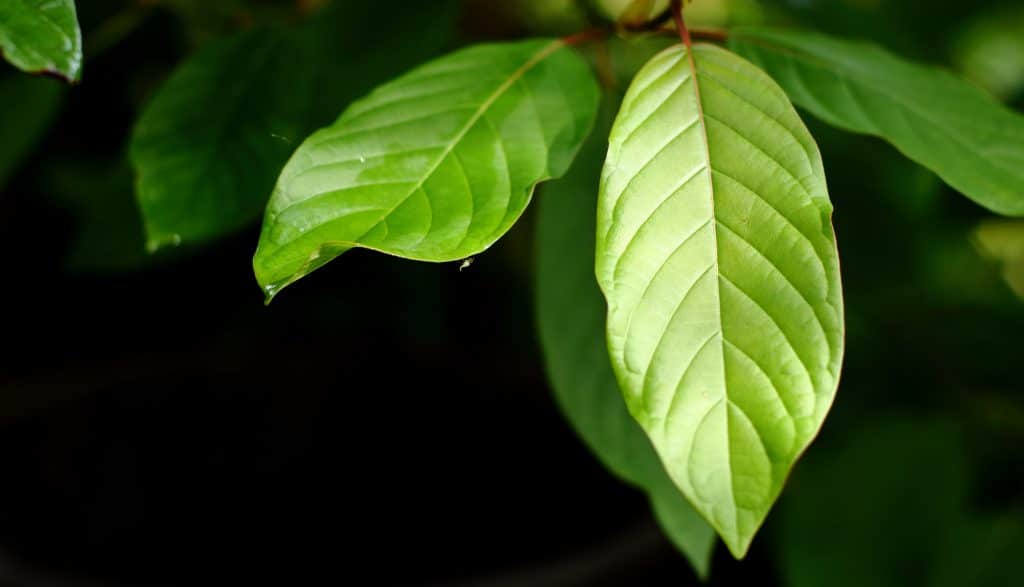
How Long Does Kratom Last?
Kratom takes between 30 and 60 minutes to take effect. It usually reaches peak effect by the one-and-a-half-hour mark.
Peak effects usually remain for one or two hours before gradually fading out again over time.
If you’re using kratom to help manage anxiety for certain situations, you may only need to take one dose. If you’re using kratom for its effects on mood and depression or need a longer duration of effects, you can take smaller, recurring doses every 3 or 4 hours as needed.
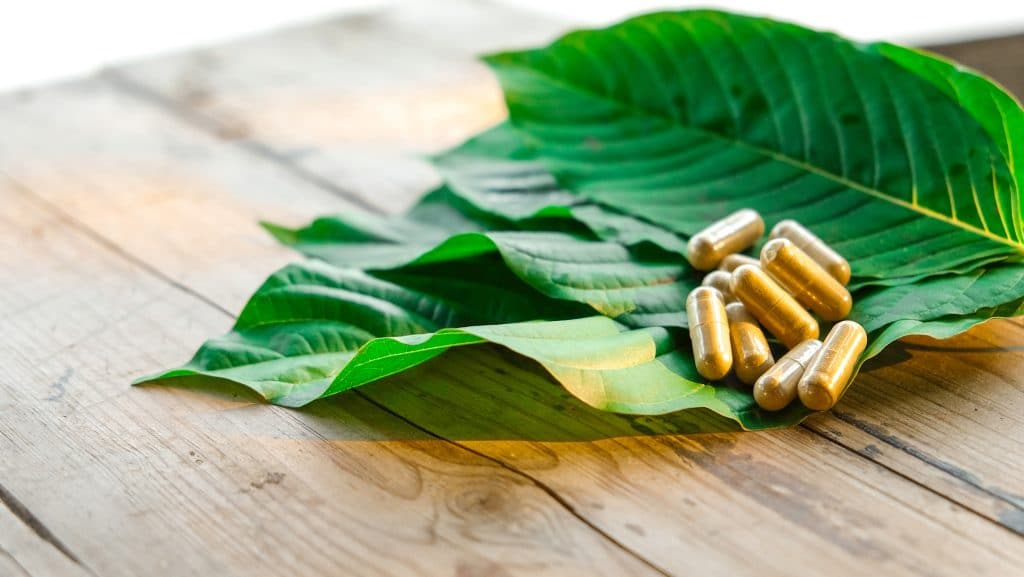
Final Thoughts: Can Kratom Support Mental Health?
Kratom can be exceptionally useful for alleviating stress and anxiety — but only if you use it at the right dose.
In lower doses, kratom is a stimulant — it can actually make your anxiety worse.
However, in higher doses (over 5 grams), kratom is a potent stress-reducer and anxiolytic. It’s commonly used to help with sleep, alleviate social anxiety, reduce or prevent anxiety attacks, and promote a sense of calmness and tranquility.
The best kratom for anxiety is the Green Malay, Red Thai, or White Maeng Da strains. We recommend checking out the selection from vendors like Kona Kratom, Star Kratom, or VIP Kratom.
- Swogger, M. T., & Walsh, Z. (2018). Kratom use and mental health: A systematic review. Drug and alcohol dependence, 183, 134-140.
- Swogger, M. T., Hart, E., Erowid, F., Erowid, E., Trabold, N., Yee, K., … & Walsh, Z. (2015). Experiences of kratom users: a qualitative analysis. Journal of psychoactive Drugs, 47(5), 360-367.
- Grundmann, O. (2017). Patterns of kratom use and health impact in the US—results from an online survey. Drug and alcohol dependence, 176, 63-70.
- Klitenick, M. A., DeWitte, P., & Kalivas, P. W. (1992). Regulation of somatodendritic dopamine release in the ventral tegmental area by opioids and GABA: an in vivo microdialysis study. Journal of Neuroscience, 12(7), 2623-2632.
- Bowe, A., & Kerr, P. L. (2020). A complex case of kratom dependence, depression, and chronic pain in opioid use disorder: effects of buprenorphine in clinical management. Journal of psychoactive drugs, 52(5), 447-452.
- Elmer, T., & Stadtfeld, C. (2020). Depressive symptoms are associated with social isolation in face-to-face interaction networks. Scientific reports, 10(1), 1-12.
- Singh, D., Müller, C. P., Vicknasingam, B. K., & Mansor, S. M. (2015). Social functioning of Kratom (Mitragyna speciosa) users in Malaysia. Journal of psychoactive drugs, 47(2), 125-131.
- Swogger, M. T., Hart, E., Erowid, F., Erowid, E., Trabold, N., Yee, K., … & Walsh, Z. (2015). Experiences of kratom users: a qualitative analysis. Journal of psychoactive Drugs, 47(5), 360-367.
- Cartwright, C., Gibson, K., Read, J., Cowan, O., & Dehar, T. (2016). Long-term antidepressant use: patient perspectives of benefits and adverse effects. Patient preference and adherence, 10, 1401.
- Greenberg, M. I. (2001). Benzodiazepine Withdrawal: Potentially Fatal, Commonly MissedFollowing benzodiazepine cessation, withdrawal symptoms may begin within 24 hours or take up to two weeks to develop. Emergency Medicine News, 23(12), 18.
- Price, J., Cole, V., & Goodwin, G. M. (2009). Emotional side-effects of selective serotonin reuptake inhibitors: qualitative study. The British Journal of Psychiatry, 195(3), 211-217.
- Ashton, H. (1986). Adverse effects of prolonged benzodiazepine use. Adverse Drug Reaction Bulletin, 118(1), 440-443.
- Seidl, L. G. (1993). The value of spiritual health. Health progress (Saint Louis, Mo.), 74(7), 48-50.
- Holden, T. (2012). Addiction is not a disease. CMAJ, 184(6), 679-679.

